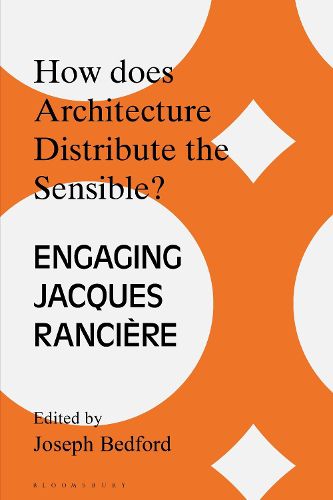Readings Newsletter
Become a Readings Member to make your shopping experience even easier.
Sign in or sign up for free!
You’re not far away from qualifying for FREE standard shipping within Australia
You’ve qualified for FREE standard shipping within Australia
The cart is loading…






Jacques Ranciere is one of the leading thinkers not only of contemporary aesthetic theory but contemporary philosophy in general. After his break from Althusser, Ranciere developed the radical and axiomatic principal of the absolute equality of intelligences and capacities that defined his entire body of work, from his critique of philosophy, to his historical studies of emancipated modes of labor and education, to the articulation of dissensus from the order of the police. Ranciere's trajectory as a philosopher led him towards aesthetics where offered a radical reinterpretation of the political meaning of aesthetics and with it, of modernism and postmodernism that, having shaken the world of art, is now shaking the world of architecture.
This book brings Jacques Ranciere's demand for equality and his reformulation of aesthetics into direct dialogue with architecture. In doing so, it inquires into the role that architecture plays in distributing the sensible, in creating aesthetic experiences, in creating order or dissensus, in serving as a mode of critique, and in emancipating or stultifying its users and subjects.
Through this detailed exchange between Ranciere and four of the world's leading architectural thinkers; Anthony Vidler, Joan Ockman, Peggy Deamer and Michael Young, a debate unfolds within the book that tests the implications of Ranciere's aesthetic philosophy for architectural practice today; questioning the way we write architectural history, how architects draw, what the labor of the architect is, and that questions key architectural ideas such as the distribution, function, use, ornament, discipline and design.
$9.00 standard shipping within Australia
FREE standard shipping within Australia for orders over $100.00
Express & International shipping calculated at checkout
Stock availability can be subject to change without notice. We recommend calling the shop or contacting our online team to check availability of low stock items. Please see our Shopping Online page for more details.
Jacques Ranciere is one of the leading thinkers not only of contemporary aesthetic theory but contemporary philosophy in general. After his break from Althusser, Ranciere developed the radical and axiomatic principal of the absolute equality of intelligences and capacities that defined his entire body of work, from his critique of philosophy, to his historical studies of emancipated modes of labor and education, to the articulation of dissensus from the order of the police. Ranciere's trajectory as a philosopher led him towards aesthetics where offered a radical reinterpretation of the political meaning of aesthetics and with it, of modernism and postmodernism that, having shaken the world of art, is now shaking the world of architecture.
This book brings Jacques Ranciere's demand for equality and his reformulation of aesthetics into direct dialogue with architecture. In doing so, it inquires into the role that architecture plays in distributing the sensible, in creating aesthetic experiences, in creating order or dissensus, in serving as a mode of critique, and in emancipating or stultifying its users and subjects.
Through this detailed exchange between Ranciere and four of the world's leading architectural thinkers; Anthony Vidler, Joan Ockman, Peggy Deamer and Michael Young, a debate unfolds within the book that tests the implications of Ranciere's aesthetic philosophy for architectural practice today; questioning the way we write architectural history, how architects draw, what the labor of the architect is, and that questions key architectural ideas such as the distribution, function, use, ornament, discipline and design.